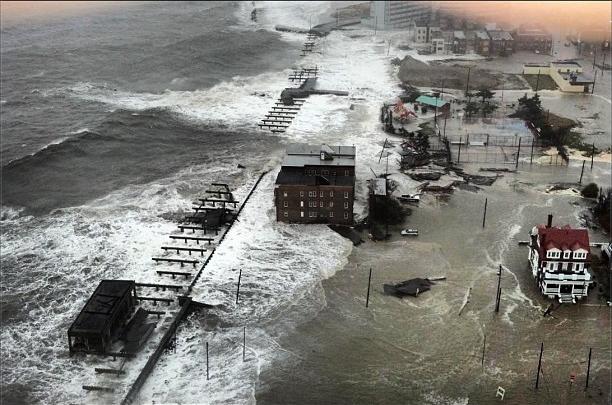The aftermath of Hurricane Sandy, which crippled one of the world’s largest urban centers for days and left over 200 people dead on its path from the Caribbean to the northeastern United States, has prompted many supporters of climate change action to wonder if it could be the event that finally leads to a tipping point in U.S. public opinion about the crisis.
It has already had some political ramifications: New York Governor Andrew Cuomo attributed the record storm to climate change soon after it struck and New York City Mayor Michael Bloomberg made an eleventh-hour endorsement of President Barack Obama who, in his judgment, is more committed to cutting greenhouse gas emissions.
In his first speech after winning re-election, President Obama referenced the country’s moral responsibility to act on climate change, saying America must “pass on a country that isn’t threatened by the destructive power of a warming planet.”
It is too early to say whether the impact will be enough to overcome the country’s entrenched and well financed fossil fuel interests, but with the election behind us, the U.S. appeal for patience at the climate talks because of its domestic political constraints becomes less credible.
Moreover, scientists are increasingly able to find the fingerprints of anthropogenic climate change on recent record-breaking weather events. For example, a rise in sea levels give hurricanes a higher “jumping off point” when they come ashore, posing a greater risk to people, roads, and buildings. Warmer temperatures also lead to more precipitation, flooding, and more powerful storms.
The extensive damage caused by the storm in the New York area alone, which early estimates put at $50 billion, also underscores the need to develop an international mechanism on loss and damage in earnest, and shows that the promise of $100 billion a year by 2020 for poor countries to adapt to climate impacts and develop clean energy sources will not be nearly sufficient.
Many island communities have been experiencing these kinds of impacts for some time, and more are certain to come, but when the tragedies occur far away from the media’s spotlight, they are too easily forgotten. It falls to us to help ensure that AOSIS’s climate impact stories are heard – and remembered – every chance we get.
